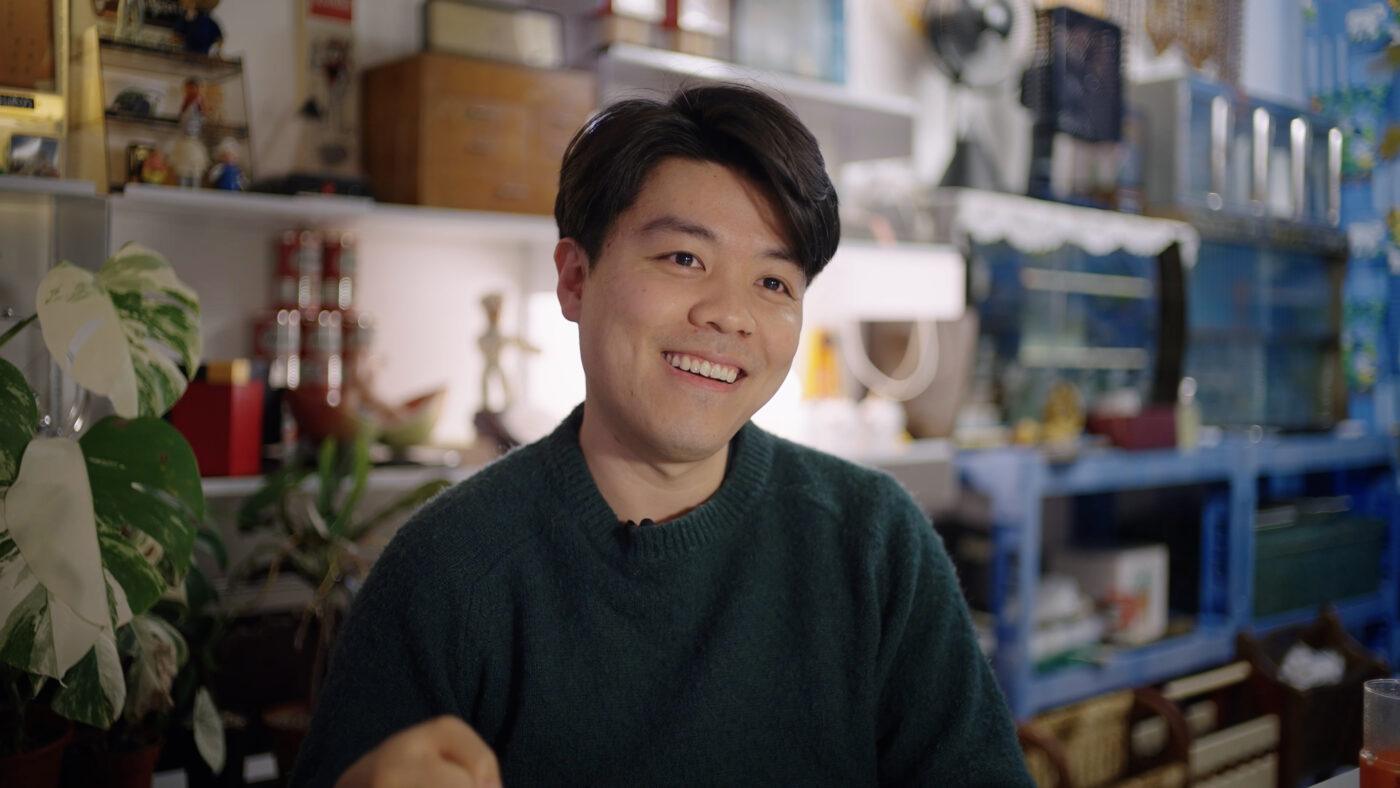Wong Ping

Wong Ping was born in 1984 in Hong Kong, where he currently lives and works. He received his BFA from Curtin University in Perth, Australia, in 2005 and began making animations under the name Wong Ping Animation Lab in 2010. In his short films, the artist combines deadpan Cantonese narration with brightly colored animations to tell surreal stories about subjects typically considered taboo. Ranging from provocative tales about love, lust, and revenge to darkly comic fables for the modern world, Wong’s animations tap into our collective subconscious, seeking deeper truths about the human experience.
Throughout his practice, the artist explores modern life and the subconscious, critiquing society through comical and often salacious scenarios. In one of his earliest films, Stop Peeping (2014), Wong narrates the thoughts of an overworked and isolated protagonist as he spies on the college student who lives next door to him. As the animation progresses, the narrative delves into absurdity, the irreality of the scenario opening the door to deeper questions about loneliness and desire. Wong balances the heavy themes of his work with absurd humor and his signature animation style of bright colors and simple geometries, disguising poignant observations of human behavior and societal failures within a playful and disarming aesthetic. An Emo Nose (2015), a film about a depressed protagonist, explores the depth of the protagonist’s ennui through his anthropomorphized heart-shaped nose as it struggles to escape his negative energy. In Jungle of Desire (2016), the narrator questions his feelings of powerlessness in his relationship and his life while dreaming of a fantastical revenge plot concerning the police officer taking advantage of his wife. In each of these works, sexual themes and humorous scenarios lead audiences to deeper questions.
In another series of works, Wong presents a more explicit commentary on contemporary life as he updates moral lessons for the twenty-first century. In Wong Ping’s Fables 1 (2018) and Wong Ping’s Fables 2 (2019), the artist presents short tales modeled after stories like Aesop’s Fables. In each animation, an anthropomorphized animal or object wrestles with their problems, ranging from their appearance or social-media presence to their political and moral beliefs, and at the end of each tale, Wong provides the lesson of his story. However, rather than sticking to standard takeaways, the artist takes a more cynical approach, providing blunt advice that calls for viewers to “keep laughing even when you are surrounded by corpses” or “spend more time considering how meaningless and powerless you are.” As in his earlier work, the Fables aim to uncover the workings of our collective unconscious. Giving voice to taboo, cynical, and outrageous thoughts, Wong’s animations open space for audiences to confront these things head-on and with humor.
Videos 1
-
Wong Ping
“I’m more interested in stepping on the line rather than crossing it, because stepping on it is more provoking.”
Wong Ping

